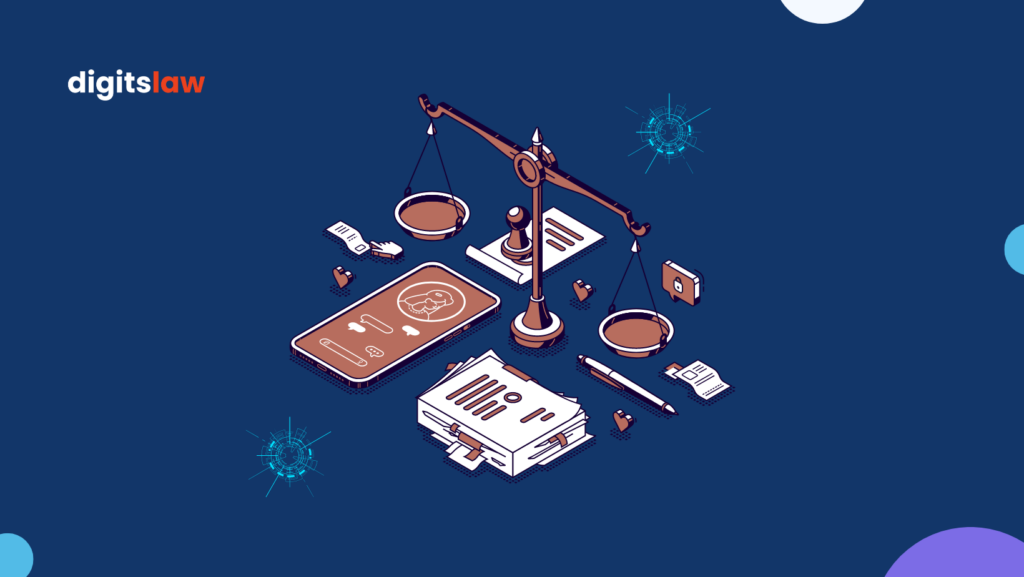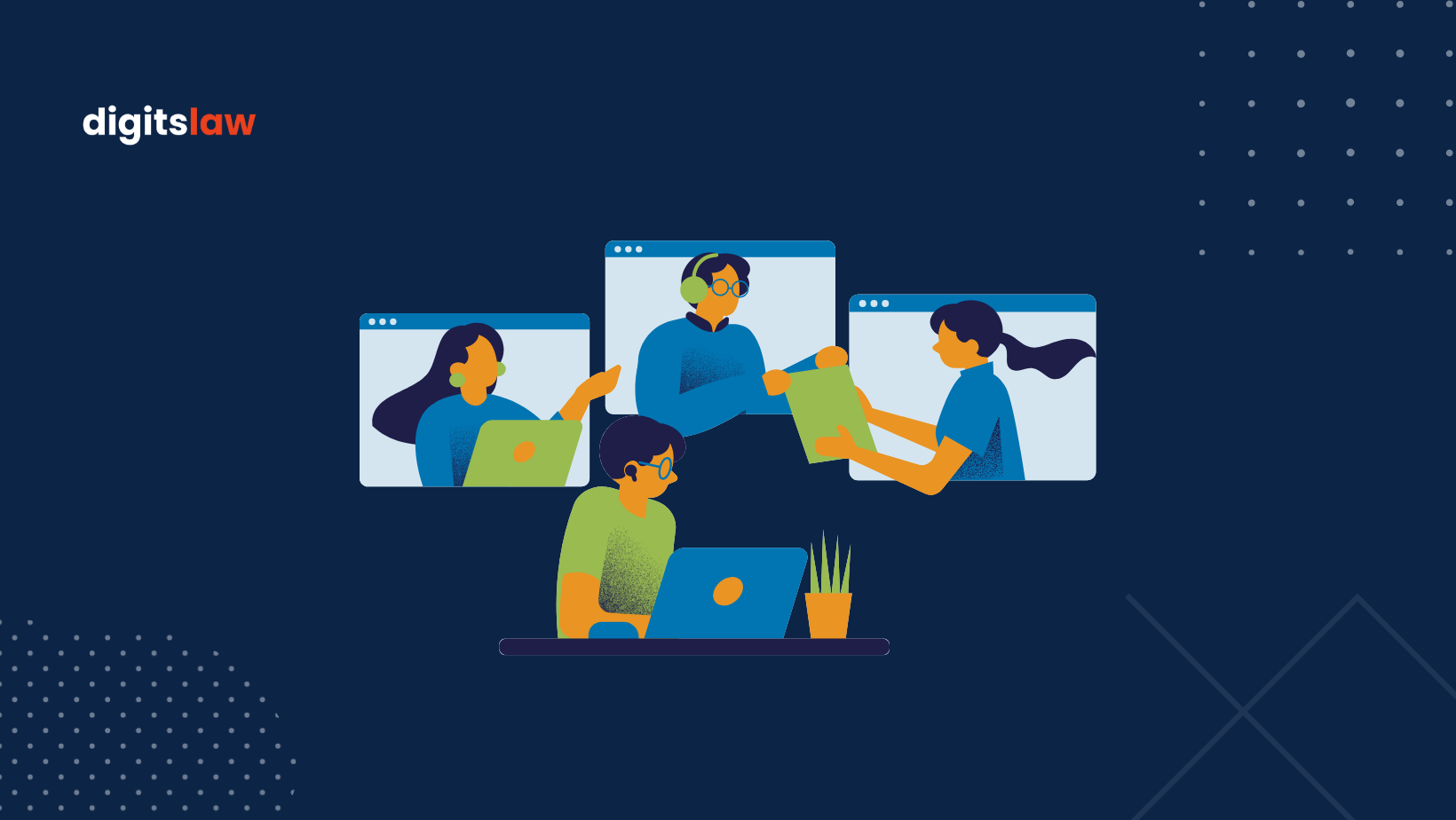The legal industry keeps adopting new technology. Every year, we see new legal technology trends that have the potential to transform the way lawyers work. However, many law firms and departments struggle to implement these technologies effectively.

Top Legal Technology Trends
In 2023, we saw several legal technology trends emerge, including
- The migration of documents to the cloud allows for faster searching, sharing, and tracking.
- The use of automation for e-discovery, research, and contract review.
- The use of artificial intelligence (AI) The use of virtual legal assistants to handle low-level tasks, freeing up staff to pursue more value-added work.
These trends are expected to continue in 2024, and we can expect to see more growth in the following areas:
- Remote Legal Practice
The pandemic accelerated the shift towards remote work causing many law firms and legal organizations to swiftly transition to remote work arrangements. While some professionals are gradually returning to the office, a considerable number of legal professionals continue to work remotely, either on a full-time or part-time basis. The key to successful remote work technology in the legal industry lies in establishing a robust system and implementing tools that facilitate communication and collaboration, even when lawyers are not physically present in the same location. By prioritizing effective remote work solutions, the legal industry can adapt to the evolving work landscape and unlock the benefits of remote work while maintaining productivity and client satisfaction.
- Enhanced Cybersecurity Measures
Cyber threats continue to evolve, ensuring robust cybersecurity measures is a top priority for law firms and legal departments. Many law firms and corporate legal departments are increasing their investments in cybersecurity practices. This entails not only providing comprehensive training on basic cybersecurity practices for legal professionals but also equipping them with the necessary technological resources to navigate the rapidly changing legal landscape securely. This year, we can expect increased investment in cybersecurity solutions tailored for the legal industry. These solutions may include advanced encryption techniques, multi-factor authentication, secure client portals, and AI-powered threat detection systems.
- Automation of Legal Task
By implementing automation technologies, they can optimize routine tasks, such as contract creation, document assembly, and compliance checking. Furthermore, automation allows legal professionals to handle a higher volume of work without sacrificing quality. By automating repetitive tasks, lawyers can dedicate more time to value-added activities such as legal research, case analysis, and client communication. Automation technologies have become indispensable tools for law firms and legal departments, empowering them to streamline routine tasks, improve efficiency, reduce costs, and enhance the quality of legal services.

- Integration of Legal Technologies
This is a prominent trend shaping the legal industry. As technology continues to advance, law firms and legal departments are recognizing the value of incorporating various legal technologies into their operations. The integration of legal technologies involves leveraging software, platforms, and tools specifically designed to enhance efficiency, productivity, and accuracy within the legal profession. This can include the adoption of case management systems, document automation software, e-discovery tools, contract management platforms, and legal research databases, among others.
- Chatbots and Virtual Assistants
These intelligent software applications are designed to simulate human conversation and engage in interactive dialogue, offering a range of benefits in terms of efficiency, accessibility, and cost-effectiveness. These tools can handle a variety of tasks, such as answering frequently asked questions, providing basic legal information, guiding clients through simple legal processes, and assisting with document preparation. They can be deployed on websites, messaging platforms, or mobile applications, enabling users to access legal information and services conveniently and in real time.
- Artificial Intelligence (AI) and Machine Learning
Artificial Intelligence (AI) and Machine Learning (ML) have significantly impacted the legal technology trends. These technologies streamline legal research, contract analysis, and document automation processes, improving efficiency and accuracy. AI-powered predictive analytics aids in decision-making and case strategies. Legal virtual assistants and chatbots enhance client support, while e-discovery tools expedite document review. Implementing AI and ML requires proper data and training, ensuring ethical usage. Overall, AI and ML empower legal professionals to deliver better services and make informed decisions.
Digitslaw is Your All-in-one Law Practice Software in 2024

DigitsLaw streamlines and simplifies the day-to-day operations of a law firm, allowing legal professionals to focus on what matters – providing top-notch legal services to their clients. DigitsLaw helps law firms enjoy a more organized and efficient workflow, freeing up time to deliver the best possible results to their clients. Among other things, DigitsLaw offers:
- Access to a user-friendly platform that provides a centralized location to manage clients, cases, billing, accounting, and more.
- Full compatibility with third-party applications, so that you do not have to stop using the tools that you are familiar with.
- Comprehensive privacy practices that you can truly trust to keep sensitive information confidential.
- A secure client portal where you can safely share sensitive documents, messages, and updates.
Key features of DigitsLaw
- Client Management – Effortlessly manage client information, contacts, and documents,
- Case Management – Stay up-to-date with your active, pending, or completed matters.
- Client Portal – Enhance collaboration and communication with a secure client portal.
- Billing & Payments – Keep up your cash flow and profit margin.
- Trust Accounting – Separate your client trust funds from operating funds seamlessly
- Time Tracking – Capture time entries accurately from anywhere using the mobile app.
- Conflict Check – Conduct comprehensive checks in seconds before onboarding a new client.
- Multi-Currency – Build a global clientele. Get paid, in the currency of choice.
- Client Intake Form – Simplify your client intake process with customizable online forms
DigitsLaw Pricing

Free Trial: Try DigitsLaw for free for 7 days. No credit card is required. You’ll have full access to all of our features, so you can see for yourself how we can help you streamline your legal practice and save time and money.
Demo: If you prefer, you can schedule a free demo with one of our experts. We will walk you through DigitsLaw and answer any questions you have.







